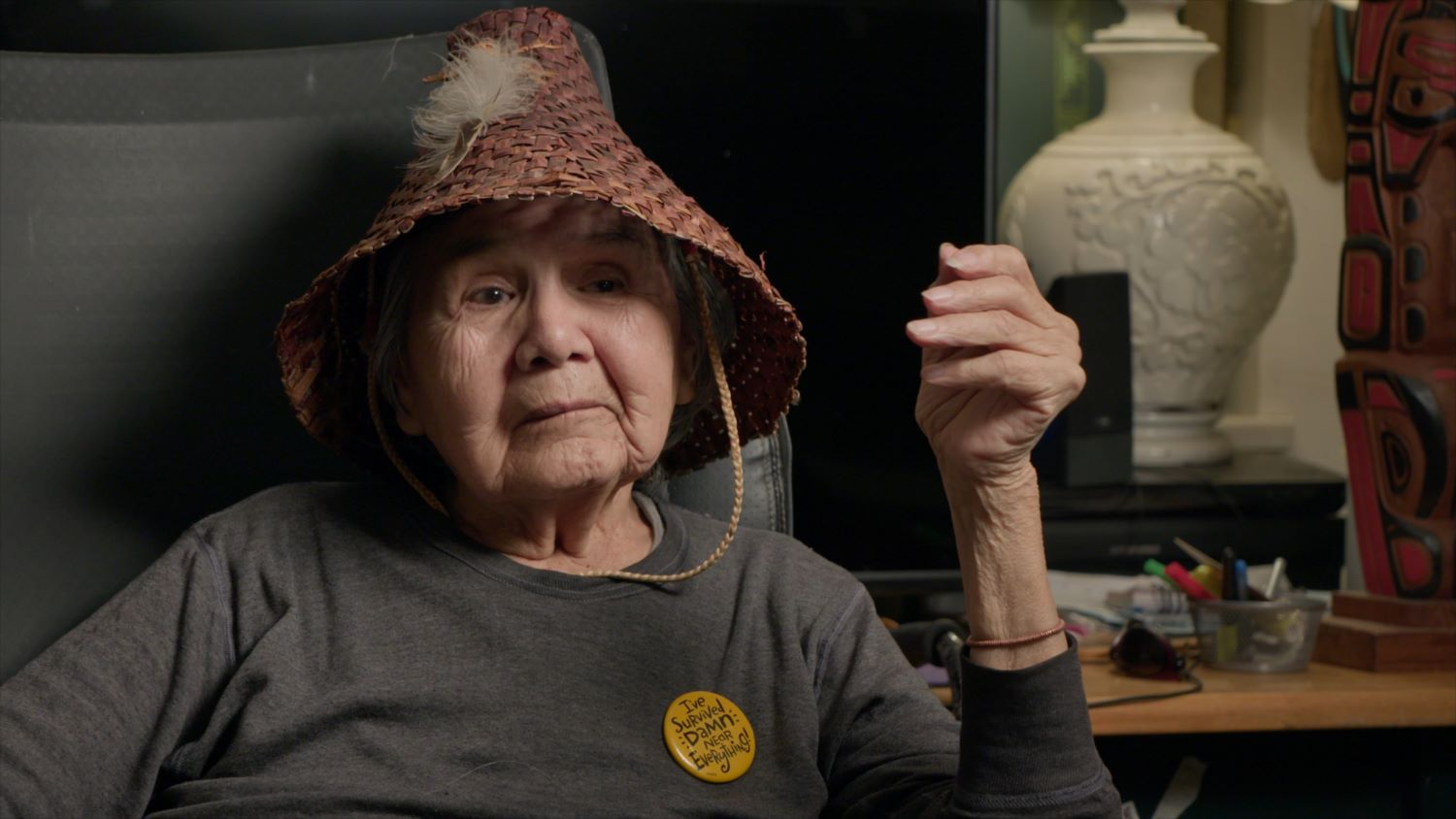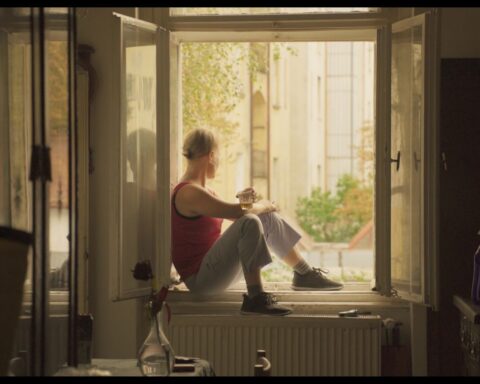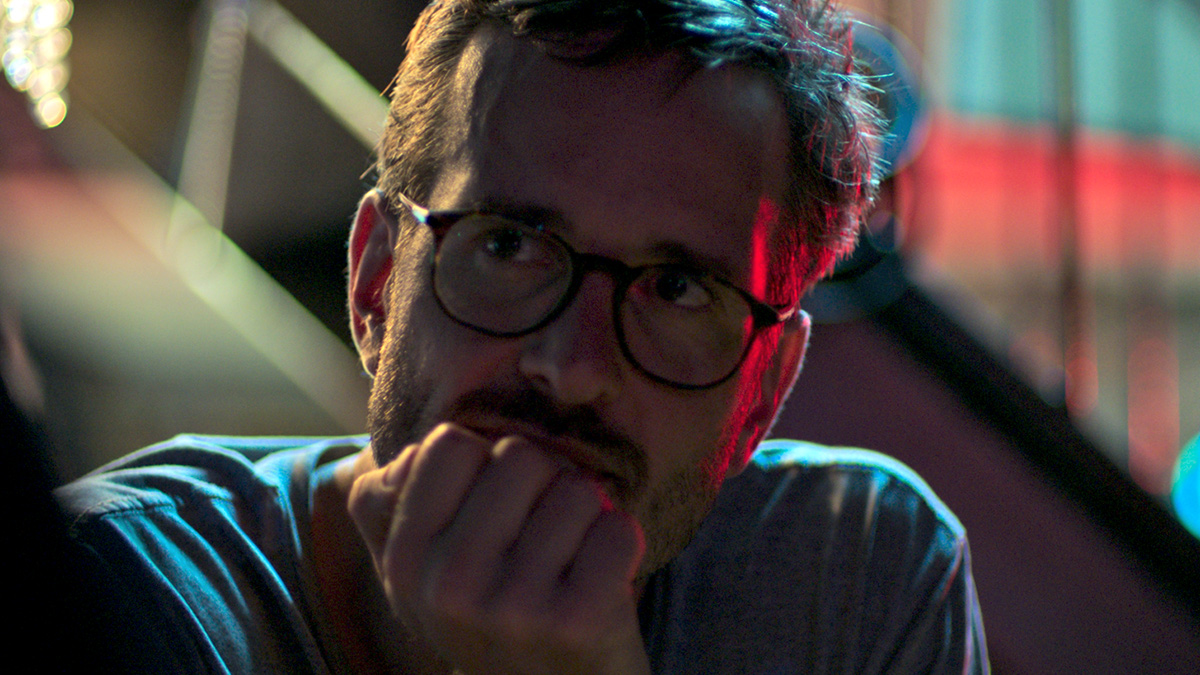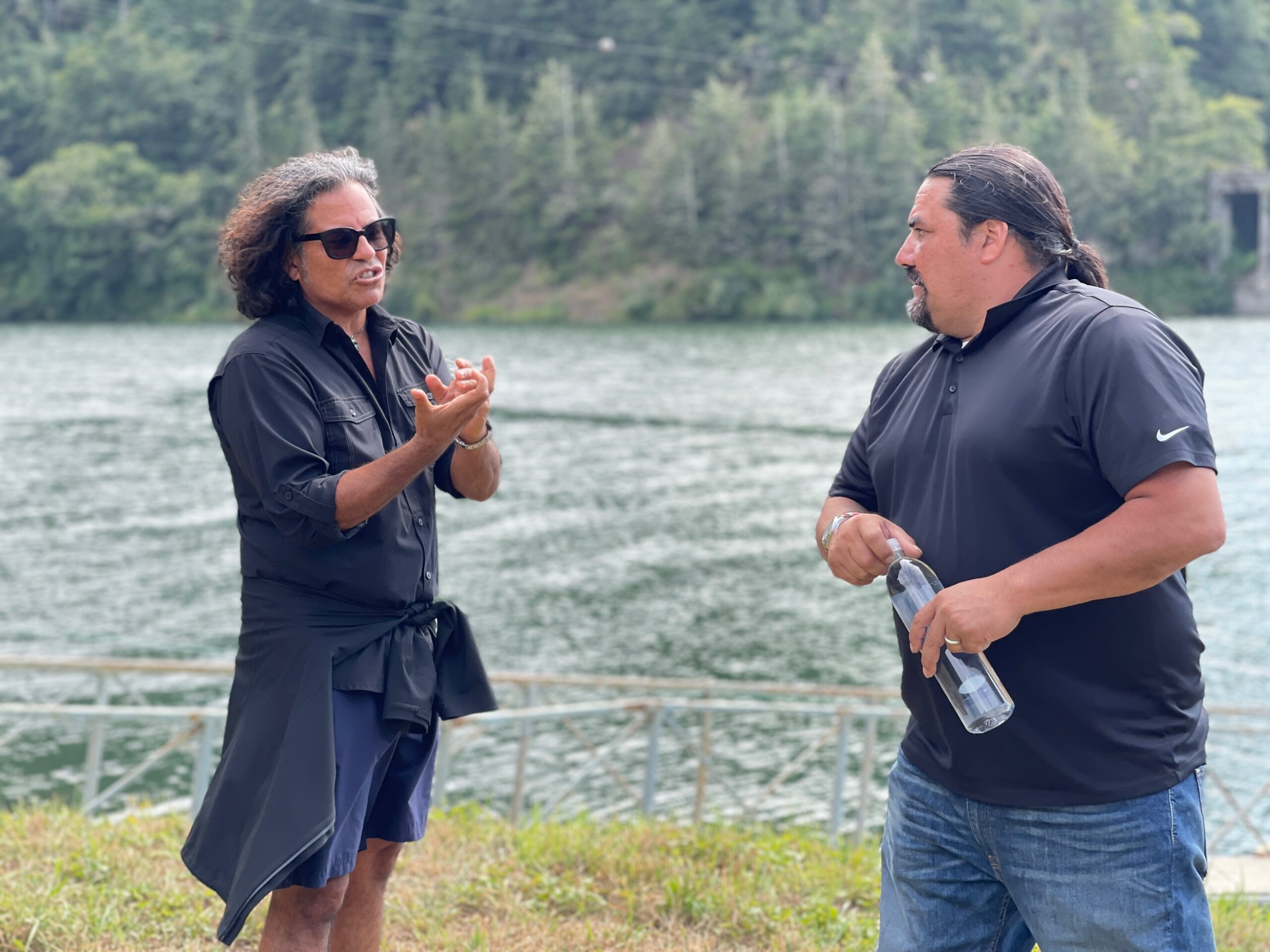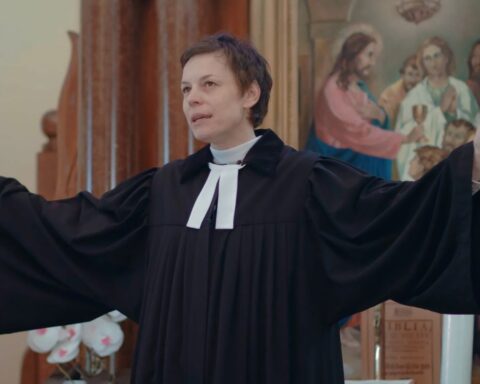s-yéwyáw: Awaken
(Canada, 92 min.)
Dir. Liz Marshall
Stories of intergenerational healing fuel s-yéwyáw: Awaken, the latest documentary from Liz Marshall (Meat the Future). This portrait draws upon the wisdom of Indigenous elders as Marshall collaborates with three multimedia artists—Ecko Aleck, Alfonso Salinas, and Charlene SanJenko—and chronicles their journeys to learn from leaders of their tribes. There are very difficult conversations throughout the film as the sit-downs with elders inevitably confront the violent past of Canada’s residential school system, which caused a chasm between families and complicated the transferral of culture, knowledge, and customs between generations.
The film, which has its world premiere at Toronto’s Planet in Focus Environmental Film Festival, but isn’t an “environmental” film per se outside of the elders’ attention towards preserving a reciprocal relationship with the land, has a strong human rights focus and respects the traumatic histories its participants might navigate. Marshall pairs the three artists with three elders. In each case, the director lets the artist guide the conversation. She’s there to film, yes, but not to dictate the process, nor to impose any suppositions upon the culturally specific histories and perspectives that fuel the film.
Salinas, for example, sits down with elder Barbara Higgins. She has reservations about Salinas’ desire to harness her knowledge, but she’s a real straight-shooter, which appropriately sets the tone and framework for the conversations that follow. This practice is respectful and values the fact that healing is neither quick nor easy.
Higgins tells Salinas about how she avoided residential school when her family hid her. She’s a knowledge-keeper and a teacher, and outlines her philosophies to Salinas. Among them is her advice for him to expand his intended audience beyond Indigenous children. She tells him not to take for granted all the adults—young, middle-aged, and old—who missed foundational experiences and were stripped of their connections to their culture and language.
This suggestion comes as Salinas requests for Higgins to teach him and a collective of young people how to wash a canoe. Higgins’ agrees, with the caveat that she’ll still need to be alive next spring, and the build-up to the canoe wash affords s-yéwyáw: Awaken a genuine emotional arc as the film bears witness to the reparation of community ties by sharing traditions. Salinas also draws insights from elder, broadcaster, and former Chief Calvin Craigan. He tells Salinas how he too has helped guide eager listeners with Indigenous knowledge, including sitting down with both Prime Ministers Pierre Elliott and Justin Trudeau.
In another thread, SanJenko shares how she’s a child of the Sixties’ Scoop. She looks back upon her childhood as an adopted kid and tells how she yearned to know more about the family and heritage that weren’t part of her life. The film pairs her with Secwepemc elder Wayne M. Christian, whose engagement with his community followed a much different path. As the pair explores the lush forest of British Columbia, Christian shares how he became Chief at age 25 and held the position for 40 years. He’s used to passing wisdom and knowledge between generations and communities.
Finally, s-yéwyáw: Awaken finds a very powerful segment as Marshall observes Aleck sit down with her father, Terry Coyote Aleck. This portion of the film observes as the elder tells his daughter about his painful experience in residential schools. Aleck bravely speaks about physical, emotional, and sexual violence he endured at the hand of a priest. He’s vulnerable for Ecko and lays bare the emotional weight of the experience. He tells her a story about standing up for oneself and speaking one’s truth, as he did in bringing his experience to light and leading a court case to address systemic abuse. There’s a great sense of catharsis here as two generations of one family confront the past.
Through these stories, Marshall respectfully observes and shares portraits of reconciliation. The collaborative nature of the film foregrounds the practice of being an active listener, of stepping back, taking in people’s stories, and engaging with them to create a best path forward. Three participants directly receive sage advice in s-yéwyáw: Awaken, but one senses how knowledge will pass on to many more empathetic ears as viewers immerse themselves in these teachings.




